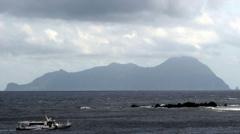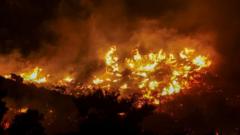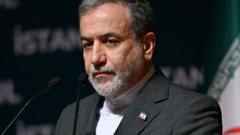North Korea has officially opened the Wonsan Kalma resort, a major initiative by Kim Jong-un to attract foreign tourists and generate much-needed revenue amidst ongoing sanctions, although foreign visitors are still noticeably absent.
**North Korea Unveils New Seaside Resort Amid Uncertain Future for Tourism**

**North Korea Unveils New Seaside Resort Amid Uncertain Future for Tourism**
The Wonsan Kalma Resort inaugurates, but hopes for international visitors remain bleak.
North Korea has taken a significant step in its tourism strategies with the grand opening of the Wonsan Kalma seaside resort this week. Announced with considerable fanfare, the ambitious project aims to entice foreign tourists to bolster the country's economy, currently hampered by stringent international sanctions. Despite the hype, the resort welcomed only domestic tourists at its launch.
State media reported that families from across North Korea flocked to the scenic 2.5-mile sandy beach located on the central east coast, two days after the resort's official opening. The North's Korean Central News Agency proudly proclaimed the overwhelming joy and optimism among these tourists, highlighting the celebrations taking place within the resort's bright new lodgings.
Capable of accommodating up to 20,000 guests, the Wonsan Kalma resort constitutes one of the most ambitious projects Kim Jong-un has rolled out in his strategy to revitalize tourism. Attending a ceremony in late June to mark the resort’s completion was Kim, alongside his wife and daughter. The move comes in the wake of intensified UN sanctions levied in 2017, which struck down vital sources of foreign currency for the regime by banning exports like coal and textiles, but thankfully spared the tourism sector—an avenue Kim sees as essential for economic recovery.
In the past, Kalma Beach, once a site of military drills featuring artillery displays, has transformed dramatically under Kim's leadership, decorated now with vibrant water parks and towering hotels. Dubbed "North Korea’s Waikiki" by South Korean media, the resort represents a concerted effort to reposition the nation’s image to attract global travelers.
However, despite the potential for economic gain, global tourism remains restrained. Notably, Chinese travel is curtailed due to prohibitions on visiting North Korea, further limiting the influx of international tourists that the regime so desperately seeks. As the Wonsan Kalma resort opens, the country faces an uncertain future in its broader tourism ambitions.
State media reported that families from across North Korea flocked to the scenic 2.5-mile sandy beach located on the central east coast, two days after the resort's official opening. The North's Korean Central News Agency proudly proclaimed the overwhelming joy and optimism among these tourists, highlighting the celebrations taking place within the resort's bright new lodgings.
Capable of accommodating up to 20,000 guests, the Wonsan Kalma resort constitutes one of the most ambitious projects Kim Jong-un has rolled out in his strategy to revitalize tourism. Attending a ceremony in late June to mark the resort’s completion was Kim, alongside his wife and daughter. The move comes in the wake of intensified UN sanctions levied in 2017, which struck down vital sources of foreign currency for the regime by banning exports like coal and textiles, but thankfully spared the tourism sector—an avenue Kim sees as essential for economic recovery.
In the past, Kalma Beach, once a site of military drills featuring artillery displays, has transformed dramatically under Kim's leadership, decorated now with vibrant water parks and towering hotels. Dubbed "North Korea’s Waikiki" by South Korean media, the resort represents a concerted effort to reposition the nation’s image to attract global travelers.
However, despite the potential for economic gain, global tourism remains restrained. Notably, Chinese travel is curtailed due to prohibitions on visiting North Korea, further limiting the influx of international tourists that the regime so desperately seeks. As the Wonsan Kalma resort opens, the country faces an uncertain future in its broader tourism ambitions.




















